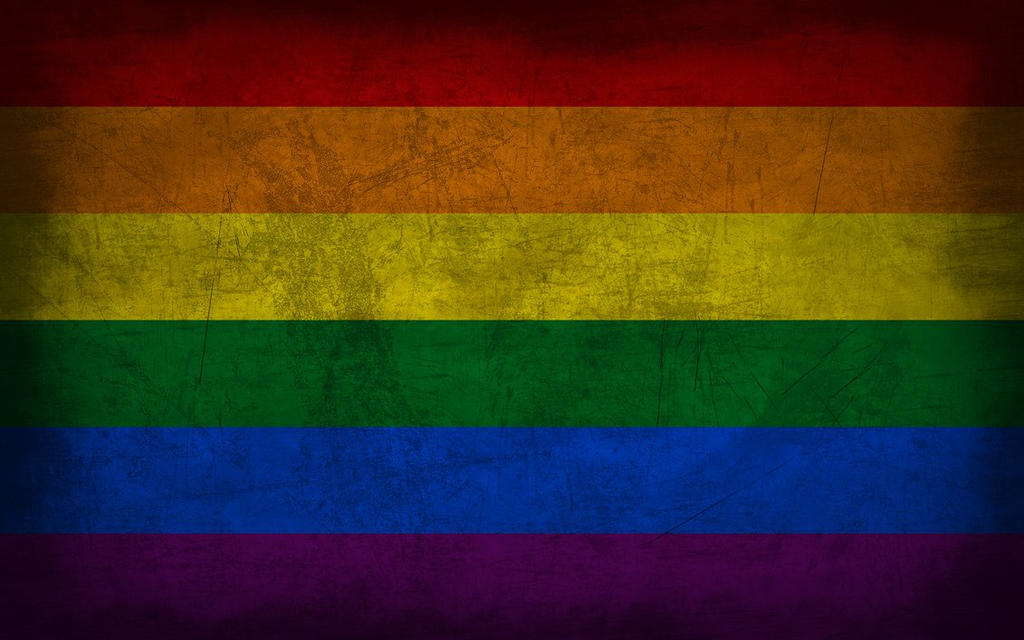As I've mentioned before, I'm working on a LGBT book. There are a lot of reasons why I'm working on it, but my primary reason is that I think accurate information is a fantastic way to protect yourself from harm. When I say that, I mean mostly on a bully level, sadly - telling somebody why a myth is wrong isn't going to stop you from getting punched/assaulted/raped, but I think information is a great stepping stone on the way to equal rights, and besides that, learning new stuff can be pretty cool. Not to mention that spreading information about this stuff could lead to the decrease of assault/rape dilemma, even if only slightly.
Anyways, one of the things I'm studying for this book of mine is history - specifically, history of homosexuality and the LGBT movement. Most of the information I've been finding has been America-centric, unfortunately (Europe has stuff like this too!), but eh. Whatever. I've been taking notes and stuff and having a good time - until I get to this article by Tom Head.
Don't get me wrong - this is a FANTASTIC article. It has a lot of useful information about when laws were overturned, what happened to overturn those laws, what helped the movement along, etc. Fantastic, right? It's a bit outdated - my guess is that it was written 2004 or 2005, since it only has the legalization of same-sex marriage in Massachusetts - but all the same, fantastic work. Loving getting notes from it. Like it's a gold mine.
EXCEPT - I then come to this.
California's case of a voluntary domestic partnerships policy is rare. Most states granting rights to same-sex couples have done so because the state judiciary has found--correctly--that blocking marriage rights to couples based solely on the partners' gender violates constitutional equal protection guarantees.
In 1999, three same-sex couples sued the State of Vermont for denying them the right to marry--and, in a mirror of the 1993 Hawaii decision, the state's highest court agreed. Rather than amending the constitution, the State of Vermont established civil unions--a separate but equal alternative to marriage that would grant same-sex couples the same rights available to married couples.
First off - I'm not writing in opposition to Tom Head. From what I could gather from his profile page, he's an advocate for civil rights, which is cool of him. Like, really cool. Sweet, guy, I got your back.
What I'm in opposition of is his choice of words. The phrase of "separate but equal" is almost an infamous reference to the Jim Crow laws of the 1950s, and even before that. What did we see with the "separate but equal" rulings? Poorer establishments for people of color, separation of white and black people in public areas, and a higher level of discrimination. Of course, I prove to be no expert on Jim Crow laws or anything like that, but that's not all - we just recently had a brush with a law that was almost eerily similar to Jim Crow laws.
Now, you might be wonder, "But Writer! Those are just his words! They can't be that literal, right?" Well, yes, I would agree; considering the time that this article was written, it's very easy to suggest that they were just his words and that he didn't truly imply what he wrote in terms of "Jim Crow". Surely, he didn't mean that civil unions were not, in fact, equal to marriage.
Except now maybe that's more than true.
Here's the thing - America was built on the ideas of equality and freedom for all people, and though we certainly try our damndest to say so, we have a long history of struggle with those exact freedoms. Class, color, sex - in the two hundred years that we've had to try and work those out, we're still at a place that we haven't quite fixed these problems. Of course, neither has anybody else, but you'd like to think a country with so much "We have FREEDOM" would've worked this stuff out.
So this isn't new. This crap that we're dealing with isn't new at all. It's just over a new issue - sexual orientation.
So why is it so hard to look back at our history and say, "Y'know, the whole 'separate but equal' thing really didn't work out, so let's not to do that again"?
My problem with the article is not only the fact that civil unions were implied as being lesser than marriage, but that it really is lesser than marriage less than ten years later. I mean, it's grand that we have civil unions - it's a step closer to equal rights and all - but the issue that we now face is that some of the states stop at "civil union" and then never move on. But that's not right; if civil unions do not promote the same rights as marriages, then they're not equal and should not be treated as such. The solution, then, is to just give ALL people the permission to marry who they love and not try to skirt around it like it's the next Armageddon.
Those are my thoughts in a nutshell: that civil unions are truly separate and unequal to marriage, and that it's just a repeat of the past. If anybody has any ideas to add to this (or wants to correct me), feel free to say something - I'm certainly not opposed to being corrected on my facts (just not my opinions).
And of course, I'm no expert. I'm just a person trying her best to learn more about the LGBT community that I happen to be a part of. In addition, I only speak in regards to America, because I'll admit that I have no frame of reference for other countries.

No comments:
Post a Comment